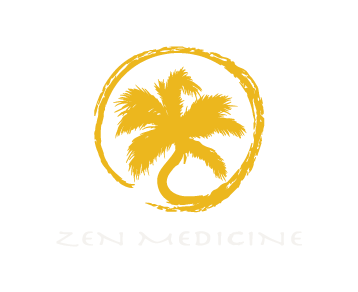Ketamine Therapy in Stuart & Okeechobee, FL
Breakthrough Relief for Depression, Anxiety, and PTSD
Discover the Healing Power of Ketamine Therapy at Zen Medicine
If you’ve struggled with treatment-resistant depression, anxiety, or PTSD you may be searching for something beyond traditional medications. At Zen Medicine, with convenient locations in Stuart and Okeechobee, Florida, we offer physician-guided Ketamine Therapy that combines the latest advancements in medical science with holistic, personalized care.
Ketamine is a rapid-acting, FDA-approved therapy known for producing fast and profound improvements in mood and mental health. Our integrative approach ensures your treatment is safe, compassionate, and tailored to your unique health goals.
What Is Ketamine Therapy?
Originally developed as an anesthetic in the 1960s, ketamine is now recognized for its exceptional success in treating mental health conditions. It works through a completely different mechanism than traditional antidepressants, targeting brain pathways responsible for neuroplasticity—the brain’s ability to heal, grow, and form new connections.
Thousands of clinical studies, supported by the American Psychiatric Association and the National Institute of Mental Health, have confirmed ketamine’s effectiveness, particularly in patients who haven’t responded to SSRIs, mood stabilizers, or anti-anxiety medications.
Conditions Treated with Ketamine Therapy
Ketamine has shown success in treating a wide range of mental health and neurological conditions, including:
-
Major Depressive Disorder
-
Bipolar Depression
-
Generalized Anxiety Disorder
-
Post-Traumatic Stress Disorder (PTSD)
-
Obsessive-Compulsive Disorder (OCD)
Many of these conditions share overlapping biological patterns—especially the impact of chronic stress on the brain’s neural connections. Ketamine helps reset those pathways.
How Ketamine Works: The Science Behind the Therapy
When you’re experiencing depression, anxiety, or trauma, your brain’s normal connectivity becomes impaired. This results in what’s known as synaptic disconnection, affecting how your neurons communicate.
Ketamine works by:
-
Blocking NMDA receptors, interrupting damaging stress pathways
-
Releasing glutamate, a key neurotransmitter that activates the brain’s growth and repair systems
-
Stimulating BDNF (Brain-Derived Neurotrophic Factor), which supports the formation of new, healthy synapses
-
Enhancing neuroplasticity, helping the brain “rewire” itself for healing and new learning
-
Accessing the mu-opioid receptor, contributing to pain relief and mood improvement
This unique mechanism allows ketamine to provide relief within hours or days, rather than weeks or months like traditional medications.
Ketamine and Neuroplasticity: A Mental Reset
One of ketamine’s most powerful effects is its ability to enhance neuroplasticity—the brain’s capacity to form new neural pathways. This is why many patients feel not only a shift in symptoms but also a deepened sense of insight, clarity, and emotional flexibility.
By promoting rapid brain growth and reducing negative thought loops, ketamine creates a “window of opportunity” for meaningful therapeutic breakthroughs. This is why Ketamine Therapy is often paired with psychotherapy to maximize long-term results.
The History & Safety of Ketamine
-
First FDA-approved in 1970 as a surgical anesthetic
-
Used extensively by the U.S. military for trauma and emergency pain care
-
Recognized as an Essential Medicine by the World Health Organization (WHO) since 1985
-
Now widely studied and used in controlled clinical settings for mental health and pain management
With over 50 years of safety data and more than 4,000 patients in clinical trials, ketamine continues to prove itself as one of the safest and most effective treatments for those who haven’t responded to conventional care.
What to Expect at Zen Medicine
At Zen Medicine, your Ketamine Therapy experience is personalized, private, and integrative.
Here’s what the process looks like:
-
Initial Consultation
Meet with our licensed medical provider in Stuart or Okeechobee, or via telehealth, to review your medical history, current symptoms, and treatment goals. -
Customized Treatment Plan
If you’re a good candidate for ketamine, we’ll create a tailored protocol that includes dosage, frequency, and complementary therapies as needed. -
Ongoing Monitoring & Support
We provide emotional, nutritional, and integrative support throughout your journey. You’ll also have access to our holistic team for continued mental and emotional care.
Why Choose Zen Medicine for Ketamine Therapy?
-
Licensed Medical Providers with advanced training in ketamine protocols
-
Safe, welcoming, and private treatment environments in Stuart & Okeechobee
-
Holistic integration including nutrition, mindfulness, and emotional wellness
-
Proven track record of helping patients achieve real, lasting transformation
Whether you’re managing long-term mental health concerns or seeking relief from emotional exhaustion, Zen Medicine offers a refreshing, effective, and personalized path forward.
Book Your Ketamine Consultation Today
Take the first step toward a new level of clarity, resilience, and relief. We’re here to support your journey with expert care and compassionate guidance.

